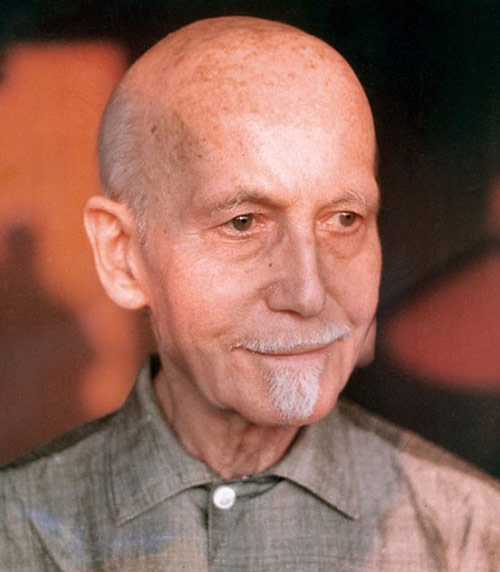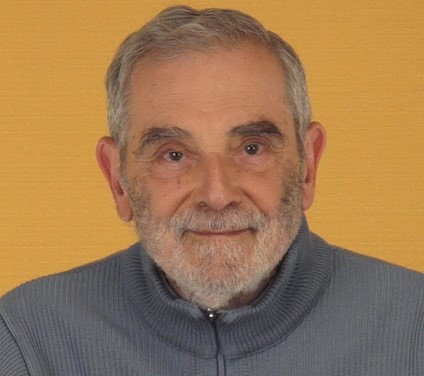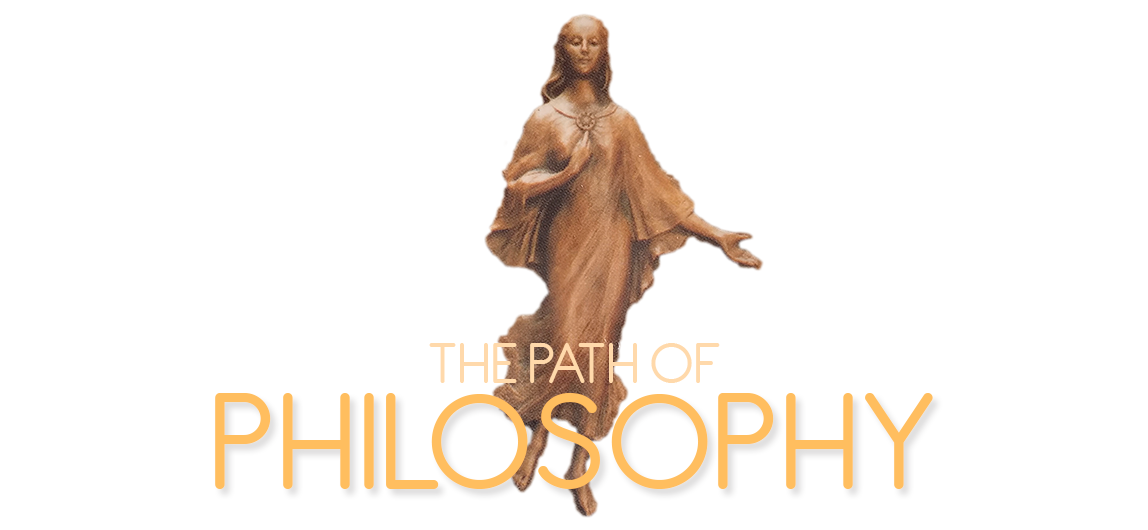
During my visits to the Figueira community in Minas Gerais, Brazil I was invited by its founder, Jose Trigueirinho Neto, to give lectures on Paul Brunton (PB) and his teachings. These lectures were simultaneously translated into Portuguese. Trigueirinho graciously offered me his Wednesday afternoon and/or Sunday lecture times for these and usually sat by my side during the presentations, often providing an introduction.
In Figueira, the word used to describe a presentation is "partilha" which means "sharing."
Over the course of time that these "sharings" were given, I noticed that Triguerinho was putting me through a training. The process took place as follows. At first, we would agree on a topic and I would spend a considerable amount of time preparing it. Then during a future visit, he gave me a list of questions to answer only a few days in advance. However, the next time the questions were provided only at the last moment, without the opportunity to prepare and research them. Finally, in the last phase of this training, he suggested that I answer questions placed to me by the audience, written on slips of paper and given to me only at the beginning of the lecture which is also how partilhas by Trigueirinho and his associations are usually begun in Figueira. Throughout this process I was being trained to answer intuitively, and to realize that within me was the knowledge and understanding needed to address the topic without preparation.
All of the recordings are in the original English with simultaneous translation into Portugese. Partilha's one and two are also available in an English-only format with the Portuguese edited out. The hall where the lectures took place is open to the outdoors and the singing of birds can often be heard.
The partilhas are listed below with a brief description of their content, followed by a brief account of how I met Trigueirinho during a visit of his to Paul Brunton in Switzerland, and finally, excerpts from two books of Trigueirinho about Paul Brunton.
The translators name is Marietta, later known as Katarina.
January 23, 2002
English with Portuguese (1 hour 48 minutes)
English only (41 minutes)
(1) Introduction by Trigueirinho. My Impressions of Figueira. My relationship with Paul Brunton and Jose Trigueirinho. An introduction to Paul Brunton and his work, and to Anthony Damiani and the Wisdom's Goldenrod community. Guidelines for how to study a PB quote. (The translation by Marietta was assisted by Morris Safdie.)
February 3, 2003
English with Portuguese (59 minutes)
English only (31 minutes)
(2) Paul Brunton's teaching on the Short Path. The Short and Long Paths. Presentation and discussion of some paragraphs from the Notebooks.
August 8, 2004
English with Portuguese (43 minutes)
(3) Introduction by Trigueirinho. A few days before this parthila, Triguerinho presented me with the following list of questions about Paul Brunton and his books:
- Are the books of Paul Brunton: Inspired? Initiatory? Prophetic?
- How should one consider "The Notebooks of Paul Brunton"? As: memoirs?, a testament?, chronicles? a philosophical synthesis?
- To what extent is this work journalistic?
August 11, 2004
English with Portuguese (36 minutes)
(4) Introduction by Trigueirinho. A second set of questions were given by Triguerinho asking about Paul Brunton's work in relation to other philosophies. These questions were answered in part with a presentation of Brunton's "Metaphysics of Truth."
- Is there a single Fountain of Wisdom?
- Can what we find in PB also be found in Plato, in Socrates, in Hinduism, etc?
- Is it only the form that is different?
- Is the "Inner Reality" of PB, in principle, Christianity, or Hinduism?
- Where do you place PB's yoga in the context of the different yogas?
Feb 19, 2006
(5) Not recorded. The partilha addressed the following questions from Trigueirinho:
- How does PB address the issue of extraterrestrials?
- How does he view them?
- What is the enlightened mind?
- How do people study at Wisdom's Goldenrod?
- How do you organize the studies?
March 14, 2007
English with Portuguese (34 minutes)
(6) Questions from the audience:
- How can one live in the spiritually challenging environment of a large city? Importance of a disciplined spiritual practice, purification exercises and benefiting from the challenges. The example of PB. Spiritual groups and the need for contact between them. About Wisdom's Goldenrod and the method of study. Sancta Sophia.
Question:
- what about when groups are not in harmony with each other? An exercise of spreading the light and linking spiritual groups.
March 16, 2007
English with Portuguese (49 minutes)
(7) Response to a question about study. Valid sources of truth in different traditions and Plato's reminiscence. Reason as a faculty of spiritual truth. If the Sage needs to use the faculty of reason. Synthesis. Forms of truth and the unitary truth. Anthony Damiani's approach to studying philosophy. Group study. The use of reason to ascertain truth. A story about PB and tea. Similarities and differences between Figueira and Wisdom's Goldenrod. Anthony's dis-incarnation and the loss of the teacher. The Dalai Lama's relationship to Wisdom's Goldenrod. Questions from the audience:
- What is the relationship between reason and intuition?
- Does one eventually abandon reason? PB's intellectual development.
March 17, 2007
English with Portuguese (59 minutes)
(8) Introduction by Trigueirinho. Reminiscences of Paul Brunton and Ideas from His Notebooks. Topics include: the organization of the "Ideas" and their publication as the Notebooks; the various human faculties and their development; their fusion as Insight and the Sage's insight. The comparative approach to philosophy and Wisdom's Goldenrod. PB's approach to food, and vegetarianism. Also my response to a question of Trigueirinho:
- "Can you tell us how life is at Wisdom's Goldenrod?"
Questions from the audience included:
- What is the relationship of Paul Brunton and Jesus Christ?
- How does Paul Brunton approach the issue of diet?
- How do people eat at Wisdom's Goldenrod?
- How did PB himself eat?
March 17, 2008
English with Portuguese (59 minutes)
(9) Introduction by Trigueirinho. Commentary on PB and electricity in relation to the lights in the lecture hall going out before the talk. My experiences with PB and the silence surrounding him. PB's Notebooks and how they differ from his earlier books. The non-dual, ultimate state. Development of the personality on the path. PB as a "researcher" and PB's practicality. Life as sacred. How the Notebooks were written. "The Yoga of the Liberating Smile." Questions from the audience:
- How did PB's view groups and how would he view Figueira?
- Did PB say anything about the transfer of the Planetary Regent Center to South America and about gender?
- What was PB's mission?
- Where did PB live?
- Was PB criticized?
- Was PB guided?
- The Notebooks of Paul Brunton and the 28 Ideas.
March 18, 2008
English with Portuguese (1 hour 1 minute)
(10) The first of two partilhas presenting an overview of specific "Ideas" or "categories" contained in Paul Brunton's Notebooks. How PB received and recorded this information. What are the "Ideas" of Paul Brunton?" Overview of Category 16 from the Notebooks: "The Sensitives" Dynamics and Dangers of Mysticism." Questions from the audience:
- What happens if we stop searching for mystical experiences?
- How to relate to suffering on the path?
- Is distortion inevitable on the material plane?
- Why is the ego so strong and problematic?
March 21, 2008
English with Portuguese (1 hour 14 minutes)
(11) What is an "Idea" and where do they come from? How to reconcile PB as a human and PB as from Sirius? Overview of four ideas from the Notebook pertaining to the development of the lower vehicles: the Body; the Emotions, the Intellect, and Healing. Stories of my time with PB. Overview of the "Ideas" in the published Notebooks. The alignment or "flow" of the Sage. Questions from the audience:
- What were PB's views on sexuality?
- What are the other "Ideas" in addition to the four discussed today?
- How to think correctly?
- What did PB eat? The importance of being vegetarian.
- How to work on your character?
Trigueirinho and Paul Brunton and how I met Trigueirinho
 Paul Brunton was an early and important teacher of Trigueirinho. He recommended the reading and study of P.B.'s books to all of his early students and frequently refers to him in his lectures and books. Trigueirinho requested and was granted an interview with PB in 1980. At that time I was in Vevey, Switzerland for a period of two weeks working with PB as his assistant. It was during this visit that Trigueirinho had his interview with PB. After arriving at his apartment, they went into the living room and were together all day and into the evening. When it was time to leave I accompanied Trigueirinho to the train station. This meeting with Trigueirinho, "orchestrated" by PB, changed my life and the course of my destiny forever.
Paul Brunton was an early and important teacher of Trigueirinho. He recommended the reading and study of P.B.'s books to all of his early students and frequently refers to him in his lectures and books. Trigueirinho requested and was granted an interview with PB in 1980. At that time I was in Vevey, Switzerland for a period of two weeks working with PB as his assistant. It was during this visit that Trigueirinho had his interview with PB. After arriving at his apartment, they went into the living room and were together all day and into the evening. When it was time to leave I accompanied Trigueirinho to the train station. This meeting with Trigueirinho, "orchestrated" by PB, changed my life and the course of my destiny forever.
Trigueirinho on Paul Brunton
On the Notebooks (Excerpted from the Spanish Edition of the "Esoteric Glossary").
A monumental work of rare philosophical, spiritual and human value written over the course of several years and published in 1984 in English. It has been translated in Spanish by Kier Editorial (Buenos Aires). Synchronized with extra-planetary archetypical patterns even when addressing humanity's terrestrial issues, it contains information and instructions that lead us to understand life in a more vast and deep manner. Written by a wise man - Paul Brunton (1898-1981) - who becomes entirely human in his expression and service to humanity and who "realizes in his being and in his life the possibility that we have to achieve that nobleness and auto-perfection", as he is described by his editors at Larson Publications (Burdett, New York) and from the Wisdom's Goldenrod Center (Valois, New York).
Presented in sixteen volumes composed of brief reflections, it is directed to people in different stages of development. His suggestions and statements can be understood on many levels in a way that everyone may take what corresponds to him or herself.
Paul Brunton clarifies, reveals, points and instructs with clarity, wisdom and accuracy about topics normally considered complex. With respect to his work, he notes: "It is not asked of anybody to comply with rules. I propose only with those that your intelligence concurs or approves of [...] Introducing a broad vision of the world in a small phrase can confuse some readers, but it will enlighten others [...] It is inevitable that these unknowns ideas can only find theirs place in public opinion gradually" (from The Notebooks of Paul Brunton, Volume VIII, Larson Publications, New York).
To overcome the influence of the zodiacal circle and free itself from the terrestrial sphere of life, the human consciousness needs to contact impulses coming from the monadic level and from immaterial cosmic sources. This being true, and when in relation to teachings, only the energy radiated by an adept can provide that zodiacal contact. A long time ago P. B. transcended the domains of the zodiac and this Sun. Its interaction with Sirius energies allows the reader to establish broad links with supra-mental levels. "After death I will be taken to my origin star, Sothis for the Egyptians, Sirius for the westerns, and at last I will be happy [...] Sirius, formerly called the dog star, has a symbolic meaning: it represents the hidden knowledge of the hidden truth", says P. B. in his Notebooks. And he adds: "I keep myself in silent darkness and external inactivity while I await the moment in which, by irremediable necessity, I will be accepted as I am and with my conditions. These times will not come before the Armageddon". In order to understand this sentence it is necessary to consider it the voice of wisdom and truth and not the voice of an individual. "Can anyone know something about the other to write their true biography? I completely doubt it".
On PB from the book "Unveiled Secrets."
An Adept, a member of the Fraternity of Sirius, he was incarnated in the Earth in this century. Before his external conscience awakened completely to his inner reality, he contacted many philosophical and religious currents of thinking, along with initiates, mystics and saints. He traveled to the most hidden places in the world, harvesting and planting seeds of the sublime spirit's life, until he unraveled himself, mysteries that can only be seen by those whose hands raise up empty to the skies.
In PB's texts are outlined revelations that at the present time can be expressed more clearly. Despite having left a large range of manuscripts his true task was an inner task, allowing the introduction of the energies of Sirius into the orbit of the Earth and also into the material levels. His actions were deep, raising the superior sub-levels of the mental to a direct radiation of wider levels and creating access for the soul's coalition with the monad so that it could reflect externally. The higher self (or soul), a term often employed, does not always refers to the soul in the causal level, but to the monadic core that has already absorbed the soul in its center.
Immeasurable are the beneficial consequences of the presence of an adept like PB in our planet. The energy irradiated by him is food of the fire of the true life. Let us not extinguish it even when the oppositional forces try to turn it off.

